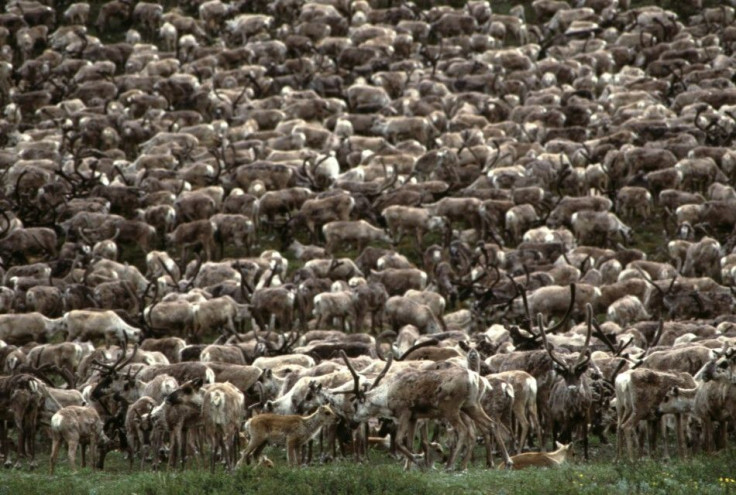Caribou: World’s Largest Reindeer Herd Shrinks in Size

For the indigenous people of Quebec and Labrador provinces of Canada, reindeer are not just for Christmas, they are central to their culture, but just a few days before Christmas, a report seems to have baffled the people as to where the world’s largest herd of caribou, popularly known as wild reindeer in North America, has disappeared.
A recent report by the Department of Environment and Conservation, Labrador and Aboriginal Affairs, shows that the world's largest herd of reindeer, the George River caribou herd in Canada’s eastern province of Quebec, has shrunk significantly.
As of August 2011, the herd of the George River caribou herd stands at approximately 74,000, which is a decline of about 81 percent compared to the previous estimate of 385,000 in 2001, according to the report.
The George River caribou herd migrates between Labrador and Quebec with both the provinces’ tribal inhabitants, the Innu, hunting the reindeer for meat, skin (for clothing and shelter) and making tools from antlers.
The declining number of caribou affects the subsistence of the Innu, as the authorities have imposed a delay on the hunting season for the George River herd to collect data relating to the cause of the decline.
However, the Innu say that major industrial operations such as iron-ore mining, flooding for hydropower projects and construction of roads, in the recent decades in the region, are the main causes of the dwindling population of the caribou.
“All the massive industrial development projects that have been imposed on our land in the last forty years have undoubtedly had a cumulative impact on the size of the caribou herd,” an Innu was quoted as saying on Wednesday by Survival International, an organization working for tribal people's rights worldwide.
“That is why we need real control over our territories and resources, and why we must be involved as equals in decisions that affect our lands and the animals that live there,” he added.
© Copyright IBTimes 2025. All rights reserved.





















